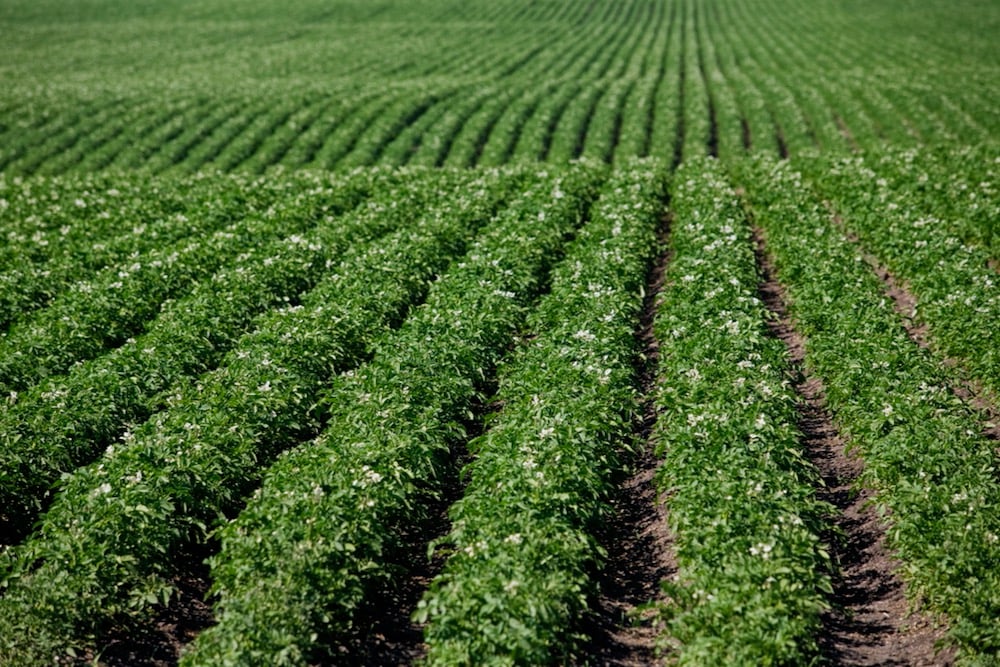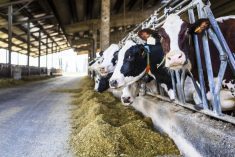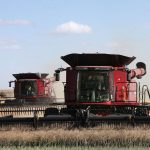WINNIPEG — Federal agriculture minister Gerry Ritz says it’s critical to maintain hog supply going into Canadian packing plants but he said ad hoc payments to troubled producers aren’t the way to make that happen.
The minister told the Canadian Farm Writers’ Federation annual conference he was closely monitoring the pork industry after the recent financial troubles of Saskatchewan-based Big Sky Farms and Manitoba’s Puratone.
Big Sky, the country’s second largest hog company, is in receivership while Puratone is seeking to restructure under court protection.
Ritz later told reporters that his officials were working with the industry and the provinces to determine how best to help.
Read Also

Alberta Crop Report: Rains in the south, dryness in the north
Rain fell onto the southern half of Alberta last week, while hot and dry conditions persisted in the northern half, according to the province’s crop report released on July 18.
“I’m not a big proponent of ad hoc programming,” he said. “It masks market signals. It doesn’t allow the industry to adapt.”
At the same time he said no program ever covers 100 percent of a problem.
“But we want to make sure that we maintain the critical mass that’s required to feed into the Brandon (hog slaughter) facility (and) other facilities across the country,” he said.
Ritz held up HyLife, the country’s largest producer, as an example of a horizontally integrated system that other companies should want to emulate.
Droughts in the corn producing regions of the United States and Ontario have taken some blame for the problems. Companies are losing $30 to $50 per pig due to high feed costs.
As well, U.S. producers have been dumping hogs and cattle on the market because they can’t afford to feed them. Ritz called it a “double whammy.”
“Everybody says that we’ll eat our way out of this,” he said. “It’s a matter of getting it done in timeliness that it doesn’t take everybody down.”
The minister also noted that the U.S. corn crop is now coming off and doesn’t look to be as poor as many expected. Fusarium and ergot in western Canadian crops could also see more grain going into feed markets.
Many experts expect the next six months will be difficult for the hog sector but the economics will then improve.
Meanwhile, all governments are keeping an eye on developments at Big Sky and Puratone.
The Saskatchewan government through Crown Investments Corporation owns 42 percent of Big Sky Farms. It previously owned 62 percent but saw that diluted during restructuring in 2010.
Farm Credit Canada also has a stake in the industry. Lyndon Carlson, senior vice-president of marketing, told CFWF the lender has almost $1 billion in liabilities within the sector.
“We’re going to do all we’re able and we’re going to stand by our customers as best we’re able,” he said.
“It’s been a thin, thin, thin margin game.”
Also at the meeting Ritz defended recent changes to AgriStability and AgriInvest and noted governments still cover the majority of risk for farmers through contributions to programs.
“When we started to analyze AgriStability, as it stands right now, with the top-up from AgriInvest we had 100 percent coverage,” he said. “It was starting to create a situation where we’re seeing the price of land go up, the price of inputs go up and farmers really weren’t as concerned about that as they should be because they had 100 percent coverage.”
Producers weren’t paying attention to developing new insurance programs either, he said.
“No one’s going to pay a premium when they get 100 percent coverage for a very modest administration fee, so you have to almost disincent that to incent the other side.”
















